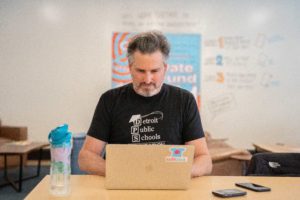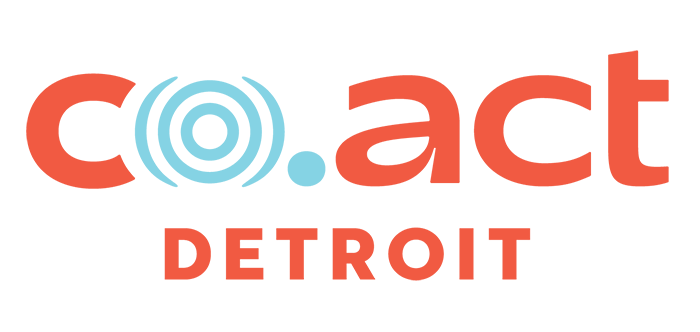Since Co.lab Connect’s program launch in July 2019, Trish Dewald, Executive Vice President of Phoenix Innovate, has provided marketing  and fundraising consultations to numerous nonprofits in the Co.act community as a monthly partner.
and fundraising consultations to numerous nonprofits in the Co.act community as a monthly partner.
We sat with Trish Dewald, who reflected on the role of #GivingTuesday in overall marketing strategy, what nonprofits can expect in consultations with her organization, and how data can help organizations tell their stories more effectively. Around the country, nonprofits raised almost $2 billion in #GivingTuesday 2019 marketing.
On #GivingTuesday:
 I love how Giving Tuesday has elevated our sector and the conversation about giving, but it can be noisy and overwhelming for donors and a massive drain on already limited resources for organizations. A Giving Tuesday campaign should be just one piece of an overall, year-long communication strategy. I don’t think that magic needs to happen on one Tuesday; I think that magic should be happening all year.
I love how Giving Tuesday has elevated our sector and the conversation about giving, but it can be noisy and overwhelming for donors and a massive drain on already limited resources for organizations. A Giving Tuesday campaign should be just one piece of an overall, year-long communication strategy. I don’t think that magic needs to happen on one Tuesday; I think that magic should be happening all year.
On what to expect in a Co.lab Connect consultation with Phoenix Innovate:
I’m meeting organizations and spending 45 minutes with them. In that 45 minutes, it’s my responsibility to leave those organizations with some tactics that they can take back and execute. Because running a nonprofit or running a development function within a nonprofit, fundraising and marketing are very complicated beasts, and there’s no wholistic solution that can be outlined in just 45 minutes. A marketing challenge to a nonprofit is typically part of a much bigger challenge. It usually involves a strategic challenge that needs to be poked at from a few different angles, so in those 45 minutes, I’m trying to help executive directors uncover what their biggest opportunities are, and then identify some tactical strategies that they can deploy.
In my life at Phoenix, I get to be a strategic partner to all of our clients. I’m not just thinking, “how can I message for you,” but also, “how do we take these different touchpoints with your organization and then make it matter to your overall mission?”
 I love when somebody says, ‘We’ve always done that.’ Because I get to say, “Okay, we may have — but what should we be doing? If you got to back up from always doing something and really be strategic with where you’re investing your time and your dollars, what could you do? What would it mean if we increased your return on investment by 10 percent this year? What would it mean if we reduced your costs and acquired 50 or 500 more donors? What do you get to do then?” Those are the questions I like to ask and help our clients answer.
I love when somebody says, ‘We’ve always done that.’ Because I get to say, “Okay, we may have — but what should we be doing? If you got to back up from always doing something and really be strategic with where you’re investing your time and your dollars, what could you do? What would it mean if we increased your return on investment by 10 percent this year? What would it mean if we reduced your costs and acquired 50 or 500 more donors? What do you get to do then?” Those are the questions I like to ask and help our clients answer.
I find that my experience with some of the larger nonprofits in town really benefits the organizations that are coming through Co.lab think about themselves differently. So, when they think about their fundraising challenges and the opportunity to do things differently, we can apply some of those big nonprofit solutions to their challenges. Instead of thinking about challenges from a scarcity mentality, how can you position your strengths in a way that help you achieve what it is you’re trying to achieve? I love that at Co.lab, I can affect lots of organizations in my community. While I can’t be every organization’s chief development officer, if I can share a few nuggets of wisdom in 45 minutes that can help organizations, it’s a gift for me.
On how data can help nonprofits tell their stories better:
Our process at Phoenix is to use data to understand the donors in a way that we can help create a more engaged, emotionally connected  audience. Many times, nonprofits think they know who their audience is; they think they know what their audience wants to hear, or if they don’t think they know, they default to talking about what they’ve done. At the end of the day, donors want to know what they did: how they affected the community, what they did to help. We help organizations understand what their donors want to know, when they want to hear it, and how that message is communicated. By really knowing an audience,
audience. Many times, nonprofits think they know who their audience is; they think they know what their audience wants to hear, or if they don’t think they know, they default to talking about what they’ve done. At the end of the day, donors want to know what they did: how they affected the community, what they did to help. We help organizations understand what their donors want to know, when they want to hear it, and how that message is communicated. By really knowing an audience,
In today’s big-data world, there’s no reason any organization should be using trial and error in conducting their marketing activity. Every organization has accessible data that can provide insights for decision-making of all kids. We harness the power of those assets to develop messaging that will lead to deeper donor engagements. The intimate understanding we get from researching what connects an audience to an organization — the emotional connection that motivates them — gives us a unique perspective that guides our creative process toward transformative and sustainable results. We call this Authentic Marketing.
